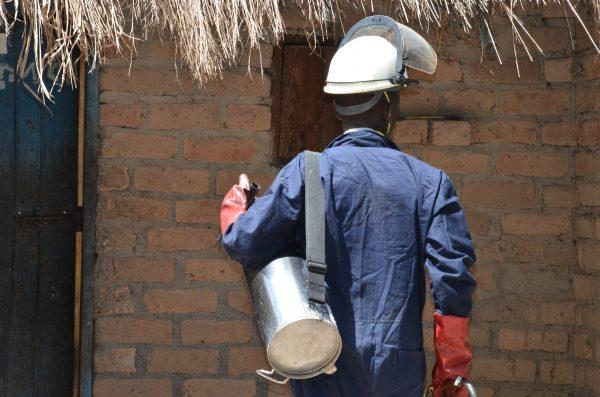Africa-Press – Namibia. THE Ministry of Health and Social Service has rolled out its indoor residual spray (IRS) campaign in 21 targeted malaria-endemic districts to combat the outbreak of malaria in the country.
In 2020, Namibia recorded over 13 600 confirmed malaria cases and over 40 malaria deaths with regions of Ohangwena, Kavango East, Kavango West and Zambezi collectively accounting for 85% of these cases and deaths.
The campaign is conducted yearly between September and December, just prior to the start of the rainy season and the malaria peak season. This year’s campaign kicked off in mid-October.
Ministry of Health Executive Director Ben Nangombe said the campaign focuses on areas where the inhabitants at risk live and sleep in sprayable structures, provided there is evidence that mosquitoes feed and tend to rest indoors.
Nangombe stated that the IRS activities will be conducted in nine regions namely Ohangwena, Oshikoto, Kavango East, Kavango West, Otjozondjupa, Omusati, Kunene, Oshana and Zambezi.
“While Namibia has achieved a remarkable decline in malaria cases in the past decade, many people are still at risk of acquiring malaria and we all need to play our part in moving Namibia closer to its goal of malaria elimination by 2023,” he said.
The ministry is implementing three major vector control interventions to combat malaria transmission by conducting IRS, larviciding and distributing long-lasting insecticide nets to targeted populations.
IRS insecticide remains effective for months, killing over 90% of mosquitoes that come to rest on the sprayed surface. Nangombe urged community members to learn and recognise malaria signs and symptoms, as well as to immediately seek treatment at the nearest health facilities.
The public is encouraged to use personal protective measures against malaria, which include wearing long-sleeved clothing, using mosquito repellents and sleeping under a long-lasting, insecticide-treated net at all times.
For More News And Analysis About Namibia Follow Africa-Press






